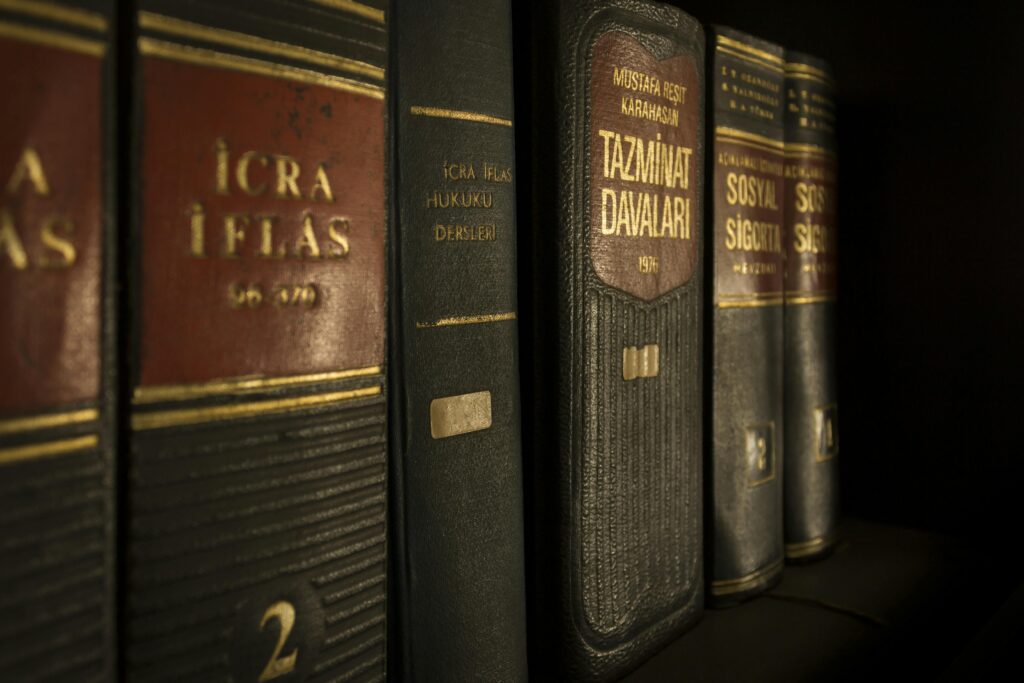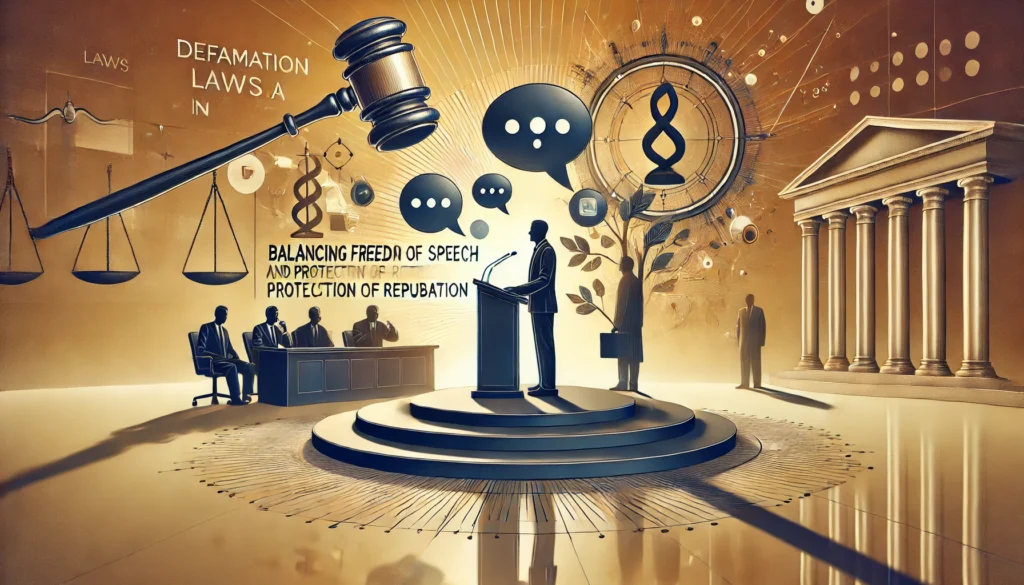Published On: 26th March, 2024
ABSTRACT:
This article throws light on the much-debated topic of the Uniform Civil Code, which is also referred to as the “One Nation- One Law.” This aims to replace personal laws that are mostly based on religious scriptures and customs with a set of laws that govern every citizen irrespective of their religion. The idea behind this code is to promote Secularism, Gender Equality and Justice. Illustrative Precedents and various Statutes will try to underscore the possibility of its enactment, highlighting its role in ensuring equality and protecting the rights of the citizens.
Keywords: Uniform Civil Code, Secularism, Justice, Gender Equality, One Nation- One Law
INTRODUCTION:
The Indian Constitution guarantees to establish a welfare state where every individual is provided with basic rights and there is no exploitation of any right by establishing a social and economic democracy in the nation under Directive Principles of State Policy as enshrined in the Constitution. These lay down that, “The State shall strive to promote the welfare of people by securing and protecting as effectively as it may, a social order, in which justice-social, economic and political-shall form in all institutions of national life.” [1]
Concept & Historical Background:
The concept of uniform civil code is enshrined in Article 44 of the Constitution under Directive Principles of State Policy which states that “The State shall endeavour to secure for its citizens a uniform civil code throughout the territory of India.” [2] This reflects the vision of a modern, progressive and an egalitarian society. The framers of the constitution envisioned UCC to promote gender equality and justice. However, fearing political and religious opposition from various groups, the makers decided to enshrine UCC in Article 44 of the Constitution under Directive Principles of State Policy. The debate for UCC dates to pre-independence era. During the proceedings of the Constituent Assembly, there used to be frequent discussions and heated debates regarding the need for the enactment of a common civil code to replace existing personal laws that have been based on religious customs and traditions. The framers have recognized the need & importance for the enactment of UCC by fostering national integration and ensuring equality before the law, irrespective of any background. Despite Article 44 guaranteeing the enactment of a common civil code, many governments have hesitated to enact such a code fearing communal tensions and violence among various groups. Another cause for this may be political considerations, and concerns regarding the minority rights and religious sensitivities. Even today, Personal laws governing marriage, divorce, inheritance, and other civil matters continue to be governed by religious customs and practices.
Need for Its Enactment:
Personal Laws often discriminate women in matters such as Marriage, Divorce, Inheritance and Property Rights. Personal Laws are also governed based on various religious scriptures. The enactment of the UCC will ensure that every citizen is treated and governed equally before the eyes of law irrespective of their religious beliefs. The UCC will ensure smooth judicial proceedings, remove all legal complexities, and uphold individual rights, while promoting the rule of law and an effective administration. It will promote women empowerment, enhance their safety, and promote a safe lifestyle. It will also match with the constitutional principles of secularism and non-discrimination.
Challenges & Opposition:
Despite the growing need for the enactment and implementation of the UCC in India, it still faces some challenges and opposition from various groups. Critics argue that the implementation of a uniform civil code will infringe upon religious freedom and cultural diversity. They also contend that UCC will infringe religious diversity as they preserve personal laws which protect individual rights. The extreme opposition from religious groups, opposition political parties, conservative factions underline the formidable obstacles confronting the UCC’s implementation. This has faced numerous legal challenges like constitutional validity, legislative capability and promoting harmony in various religious groups. Article 25 of the Indian Constitution guarantees an individual the right to freedom of religion, including the right to profess, practice and propagate a religion. Any attempts to impose a set of laws on religious communities may be seen as a violation of this fundamental right. Personal laws are enshrined in the concurrent list of the Constitution, giving the central and the state governments the power to amend and legislate certain matters like marriage, divorce, property rights, inheritance, succession etc. Any move towards the enactment of UCC would require Consensus Ad Idem among various stakeholders, governments, religious bodies, and legal experts. Also, the legal landscape of India is also accompanied with various legal systems that govern different religions like Hindu Law, Muslim Law, Christian Law, and various other laws as well. Coordinating these legal bodies while also simultaneously ensuring constitutional validity, upholding the fundamental principles, and promoting gender justice poses a major challenge for lawmakers. Critics argue that this will infringe minority rights and infringe religious freedom that may not be acceptable or appropriate for all religious communities. They also demand that personal laws are an important area of religious and cultural identity and they should be respected and preserved. India is a diverse country with various cultures and religions coexisting within its borders and any attempt to impose uniform laws would be considered as an attack on minority communities. There are practical challenges involved in drafting and implementation of a common civil code that accommodates the diverse religious and cultural practices of Indian Society. This would require careful planning, execution, implementation, discussion , careful consideration and consultation with various stakeholders to ensure that the rights and interests of all the communities are respected and adhered to will upholding the fundamental rights and principles that are enshrined in the Constitution.
Legal Precedents and Statutes:
There are certain cases which have clearly and specifically advocated the need for implementing and enacting a uniform civil code. In the case of Sarla Mudgal vs Union of India (1995) [3], The Supreme court emphasized the need for UCC to promote gender justice and equality in the society. The Supreme Court observed that “A common civil code will help the cause of national integration by removing disparate loyalties to law which have conflicting ideologies.” In the landmark case of Shah Bano vs Mohammad Ahmad Khan (1985) [4], The Supreme Court ruled in favour of maintenance rights for Muslim Women u/s 125 of the Criminal Procedure Code. Section 125 states that “If any person having sufficient means neglects or refuses to maintain his wife, unable to maintain herself, or his legitimate or illegitimate minor child, whether married or not, unable to maintain itself, a Magistrate of the first class may order such person to make a monthly allowance for the maintenance of his wife or such child at such monthly rate as deemed fit.” [5] This case also highlighted the need for uniformity in laws governing maintenance across different religious communities. Lastly in the Shayara Bano vs. Union of India (2017) [6] or the Triple Talaq case, the practice of Triple Talaq was declared to be unconstitutional. This was an important step towards gender justice and equality for Muslim women and simultaneously revived the discussions for a Uniform Civil Code. The Government subsequently criminalized the practice of Triple Talaq amidst growing opposition. Additionally, in the case of John Vallamattom & Anr vs Union of India[7] , The Supreme Court clearly emphasized the need for the implementation of a common civil code and it struck down Section 118 of the Indian Succession Act , declaring it Unconstitutional.
Current Scenario and the Way Forward:
It is very essential to scrutinize the current legal, social, and political landscape in India. India is the largest democracy in the world. India also believes in Vasudhaiva Kutumbakam and Unity in Diversity. It is also the place where multiple religions and customs co-exist together within the borders. Any move towards enacting UCC should be approached with careful consideration by focusing on inclusivity and sensitivity.
The Government and various policymakers should engage in extensive consultations with various stakeholders, including religious leaders, legal experts, women’s rights activists, and community representatives. It is very crucial to address concerns about cultural preservation while upholding the fundamental rights guaranteed and enshrined in the Constitution.
The debate for implementing the uniform civil code has gained traction which has been ignited by various socio-political developments and legal controversies. Advocates who have supported the UCC, argue that the time maybe ripe for its enactment by addressing barriers like gender discrimination, promoting secularism and uphold constitutional values. There have also been negotiations and talks for a balanced approach towards the enactment of a common civil code. Some experts argue for a phased implementation of the enactment of a common civil code, focusing initially on areas where consensus is easily more achievable, like property rights and inheritance. This approach will allow for gradual reform while also addressing concerns about religious sensitivities. Experts also highlight that this will promote national integration by prioritizing common citizenship over religious practices. This will allow smooth functioning of legal proceedings and reduce the complexity that accompanies with personal laws.
Conclusion:
In conclusion, the question of whether the time is ripe for the enactment of a Uniform Civil Code in India is still a complex and a sensitive issue. While the imperatives of justice, equality, and national unity underscore the moral and constitutional imperative for such a legal reform, the entrenched societal divisions, political oppositions, communal tensions, and cultural sensitivities pose formidable challenges. As India navigates the complexities of its pluralistic democracy in the 21st century, the quest for a harmonious society of tradition and modernity, plurality, and unity, remains a challenging aspiration. The time is indeed ripe for its implementation. Precedents from other countries, constitutional mandates, judicial directives, and contemporary socio-political dynamics all point towards the urgency of reforming personal laws to ensure equality, justice, and secularism. By enacting a Uniform Civil Code, India can fulfil its constitutional promise of providing equal rights and opportunities to all its citizens, regardless of their religious affiliations. It is imperative for policymakers, lawmakers, and society at large to engage in constructive dialogue and take decisive steps towards realizing this long-overdue reform. Only then can India truly achieve its aspirations of being a progressive and inclusive democracy in the 21st century. It can take inspiration from countries which implemented a uniform civil code like France, Turkey, and Tunisia where UCC has been implemented and there is peace and harmony in those countries. The Indian States of Goa and Uttarakhand have implemented UCC which has become a huge success that serves as an indicator for the entire country to implement UCC. The time maybe ripe for its enactment if it is approached with careful consideration for religious diversity and individual rights. A well crafted UCC has the potential to uphold the principles of equality and justice enshrined in our Constitution while respecting India’s rich Tapestry of Culture and Traditions. Overall, there has been a great debate of UCC across the nation and the government has also taken steps to claim for the same. Critics worry about religious restrictions on religious freedom and the implementing of a religious philosophy, while some people contend that the implementation of a common civil code would be a step towards defining citizens rights and promoting equality. It still seems very doubtful that a uniform civil code could be successfully implemented in a nation as diverse in culture and religion as India without suffering too many negative impacts. In conclusion, the implementation of a Uniform Civil Code (UCC) in a diverse country like India presents both challenges and opportunities. While it aims to promote equality and secularism by unifying personal laws across different religions, it must be approached sensitively to respect cultural and religious diversity. Effective consultation, inclusive dialogue, and gradual implementation may be very successful.
References:
- https://knowindia.india.gov.in/
- https://indiankanoon.org/doc/1406604/
- AIR 1995 SC1531
- AIR 1985 SC 945
- Criminal Procedure Code, 1973 Bare Act
- AIR 2017 9 SCC 1 (SC)
- (2003) 6 SCC 611




